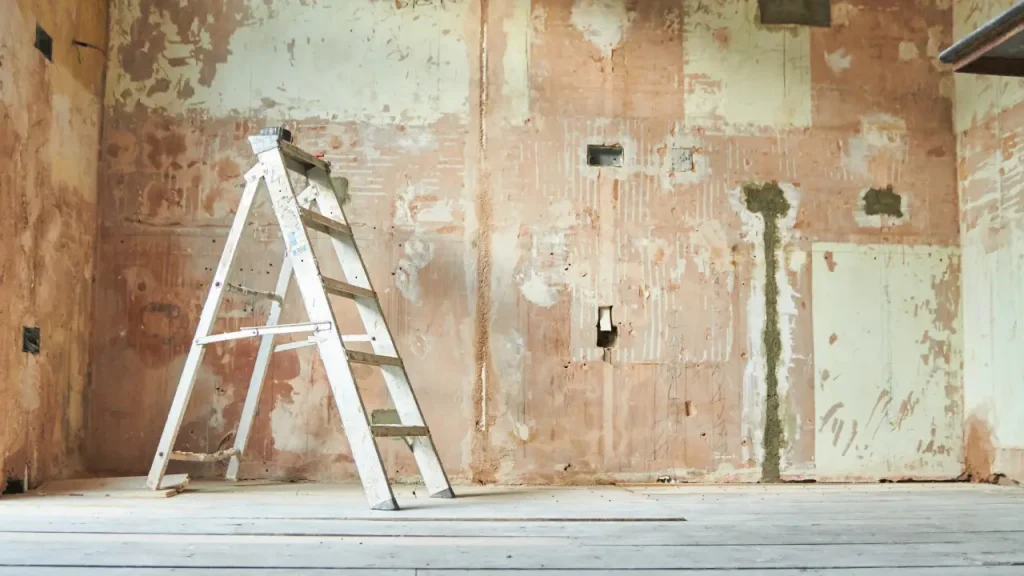
Deciding whether you should remodel or move is one of the most important choices a homeowner can make, because it directly affects your financial stability, lifestyle, and the long-term value of your home, while factoring in the costs, potential loans, mortgage rates, insurance, and other financial considerations.
This guide will walk you through everything you need to know, including costs of remodeling versus moving, how loans and mortgages come into play, and how to make the best choice for your home and financial future.
Understanding Should I Remodel or Move: Costs and Financial Impact
When you ask yourself, should I remodel or move, the first thing to evaluate is the overall costs involved. Remodeling your home can range from minor upgrades to full-scale renovations, and the costs can quickly add up depending on materials, labor, and unexpected repairs, whereas moving comes with its own costs, including real estate fees, closing costs, new mortgage payments, insurance adjustments, and moving expenses.
Homeowners often use cost calculators to compare the total financial impact, and understanding these costs is essential to making a smart decision, especially when you have existing loans or are considering new loans.
Remodeling Costs: Home Value and Loan Considerations
Remodeling a home can significantly increase your property’s value, but it is critical to analyze whether the remodeling costs justify staying in your current home versus moving to a new property, which may offer more space or better amenities.
Loans for remodeling, including home equity loans or personal loans, can help finance renovations, yet you must consider loan interest rates, repayment schedules, and overall debt before committing. Using a financial advisor or cost calculator can help you weigh the benefits of remodeling against moving, ensuring that your home investment increases your wealth rather than adding unexpected debt.
Should I Remodel or Move? Evaluating Loans, Mortgages, and Insurance
Your decision to remodel or move is strongly influenced by existing loans, mortgage rates, and insurance considerations. A home remodel may allow you to stay in a neighborhood you love, but if your mortgage or loan terms are restrictive, or if refinancing is necessary, the costs can outweigh the benefits.
Conversely, moving may provide a fresh start with a new home, potentially better mortgage rates, and opportunities to adjust insurance coverage to your needs. Comparing loans, remodeling costs, and moving expenses will clarify whether staying and remodeling or moving is financially wiser.
Financial Tools to Help Decide: Calculators and Resources
When homeowners ask, should I remodel or move, financial tools such as cost calculators and online resources provide valuable insight into both remodeling and moving scenarios. Calculators can help estimate the costs of renovations, including labor, materials, and permits, while also comparing them against moving costs like realtor fees, new loans, and mortgage adjustments. Using these resources ensures that your decision is backed by accurate financial data, helping you avoid unexpected debt or costs that could negatively impact your financial health and home value.
Estate Considerations: Should I Remodel or Move for Long-Term Value
For homeowners thinking about long-term wealth, considering your estate is essential when deciding whether you should remodel or move. Remodeling can increase your home’s value, enhance livability, and make it more appealing for future resale, whereas moving may provide immediate improvements in lifestyle and location but can include higher costs and additional loans. Balancing estate planning, remodeling costs, and potential moving expenses ensures that your financial decisions support your long-term goals while protecting your home investment.
Remodel vs. Move: The Role of Mortgage, Loans, and Rates
Mortgage terms, loans, and interest rates play a decisive role when evaluating whether you should remodel or move. If your current mortgage has favorable rates, remodeling may be more advantageous than taking on new loans with higher interest rates. Additionally, loan options for home improvements or refinancing can influence your ability to remodel efficiently. Comparing mortgage rates, loan terms, and total costs for remodeling versus moving helps you determine the most financially responsible path for your home.
Should I Remodel or Move? Moving Expenses and Hidden Cost
When evaluating whether you should remodel or move, it is easy to underestimate the costs of moving, including packing, transport, insurance, and closing fees, while remodeling also carries hidden costs such as structural improvements, plumbing, electrical updates, and permits. Homeowners must weigh these costs against potential home equity gains from remodeling or the benefits of moving to a new property. Using a cost calculator and consulting with financial advisors ensures you fully understand both options before making a final decision.
Making the Final Decision: Remodeling or Moving Based on Home, Loans, and Costs
Ultimately, the decision on whether you should remodel or move comes down to balancing your home’s current value, remodeling costs, loan options, mortgage rates, insurance, and long-term financial considerations. Remodeling may allow you to maintain your current lifestyle while increasing home value, whereas moving could provide a fresh start with new amenities but often at a higher financial cost. Careful planning, cost evaluation, and consideration of loans, mortgages, and insurance ensure that your decision enhances your home’s value, financial security, and overall wealth.

